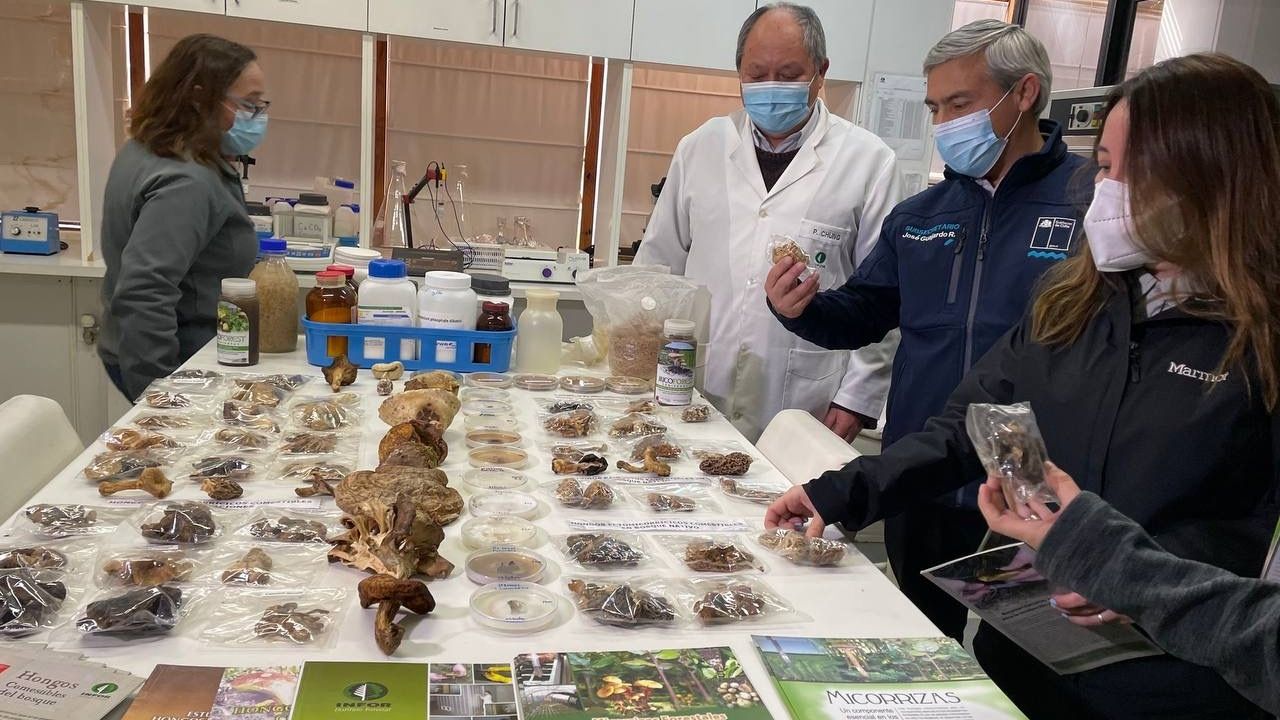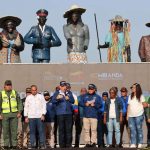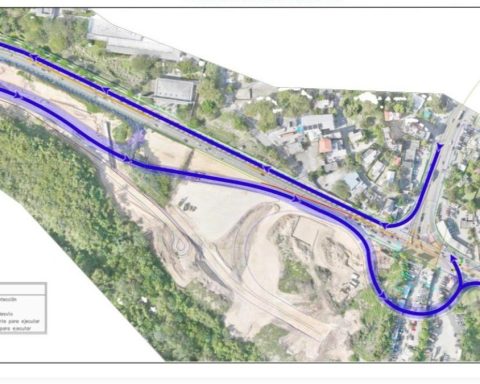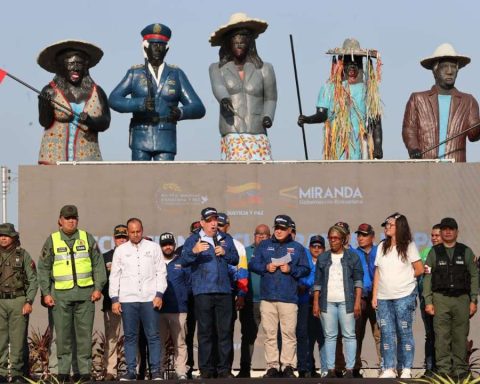A small araucaria plant, two years old and only two centimeters long, growing inside a test tube with a culture medium, various species of fungi in bags and seeds of different tree species, are only part of what can be seen inside the laboratories of Genetics, Fungi and Biomass of the National Forestry Institute (INFOR)of the Bio bio regionone of the headquarters of this agency dependent on the Ministry of Agriculture and which is focused on developing the country’s forestry area, through research and transfer of knowledge and innovation.
These facilities operate under international standards and, in them, scientists work who are dedicated to bringing science closer to small and medium-sized agriculture. For years, they have carried out research to increase the productivity of this sector – without neglecting the sustainable approach – and in a few months they will add a new space to their dependencies. This is the Forest Genomics Laboratory, run by six professionals from the area of Plant Biotechnology and Forest Genetics, whose main objective will be to improve and conserve the genetics of native and exotic forest species. How will they achieve this? Improving their adaptability to the negative effects of climate change and increasing their commercial productivity.
In the context of his tour of the region of biobiothe undersecretary of agriculture, Jose Guajardo Reyes, arrived at the INFOR facilities, located in the commune of San Pedro de la Paz, in the province of Concepción, and verified the work being carried out by scientists. In the instance, he also valued the implementation of the new laboratory and its contribution to the community.
“The Biobío region is a key area in the country’s forestry development and for our ministry it is very relevant to contribute to the sustainable use of these forest ecosystems, through technology and innovation. The work that is being developed here is a tremendous contribution, since it connects science with agriculture, allowing us to improve the quality of life of people, one of our main concerns”said the authority.
In turn, the executive director of the Forestry Institute (INFOR), an agency attached to the Ministry of Agriculture, Sandra Gacitúa Ariashighlighted that the implementation of the new Forest Genomics Laboratory “allows us to respond in the short term to the needs of disposing and transferring genetically improved plant material (seedlings and seeds), which can be used by small foresters, beekeepers, nurserymen and/or or companies associated with the forestry sector, that need to increase the adaptation and/or productivity of their plantations, which, as we know, have been affected by climate change and in terms of conservation of the country’s forest resources, we can offer the opportunity to monitor species that may be threatened and generate a faster and more efficient response, thus contributing to a model of sustainable forestry development.”
Synergy between science and the field
Jorge gonzalezengineer Vegetal biotechnology, who will be in charge of the new Forest Genomics Laboratory, explains that they are already working on the development of a portfolio of activities, within a trial run context. In this way, they advance in the improvement of the adaptability of forest species, such as the quillay, the araucaria, the maqui, the boldo and the raulí, through biotechnological tools that allow establishing a selection system. In addition, they work on the traceability of species, with which they prevent trade from affecting the country’s flora. An example of this is the advice they provide to the ports, to prevent illegal traffic in woody species.
“These are technologies used by large companies and we use them for the benefit of small forest owners, small farmers and beekeepers who see us as distant. We work with the community and attend to its needs, and we generate a synergy between the field and science. They also teach us and we are moving forward”Gonzalez points out.
The researcher explains that the way to improve the genetics of forest species is through the selection of genotypes or material that has a better adaptation, by means of technological instruments. “In laboratories we have physiology tools that allow us to see water efficiency and, for example, how resistant a plant is to drought. We put this work in the hands of peasant agriculture, since it is not the same as them buying the plants in nurseries where there is no improvement or science behind them”, he emphasizes.

To bring this knowledge to the farming community, INFO carries out theoretical and practical training in its laboratories, as well as in the field, and establishes production units in the field. An example of this is the construction of honey orchards on beekeepers’ farms, where they plant different native species that are used to feed the bees and guarantee the production of flowers during the honey-producing season.
Thanks to an international project between INFO and the Chilean Nuclear Energy Commission (CCHEN)In addition, some of the researchers who will work in the new laboratory have already completed training at the Federal University of Pelotas in Brazil, to acquire the knowledge required to manage these facilities, which will be inaugurated next November.
The space will operate in a network with the Forest Seeds, Micropropagation and Mycology laboratories of INFOR, which together will allow the development of different strategies that will not only be limited to plants, but also to fungi and other organisms.


















